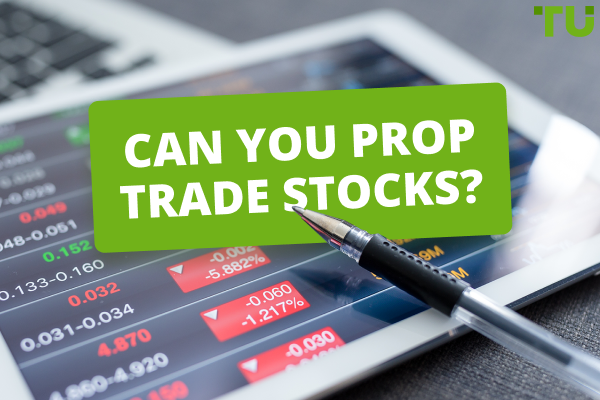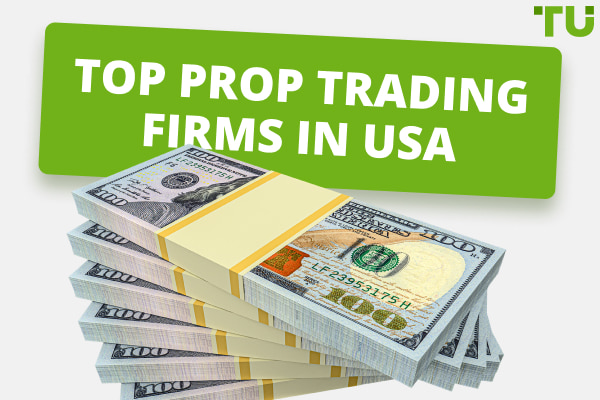Best Futures prop firms to look out for

Best Futures prop firm is TopStep
Top Futures prop firms are:
Topstep - best for Index futures
Fidelcrest - best for CFDs on futures
FTMO - best profit split
Earn2Trade - best education for futures trader
Futures trading can offer lucrative profit opportunities but also comes with significant risks. By joining a prop trading firm, aspiring futures traders can gain access to larger accounts, advanced technology, and experienced mentorship to help them navigate this challenging market. However, it's crucial to choose the right prop firm to partner with. This article explores some of the top futures prop trading firms that may be worth considering. The best prop firms can accelerate traders' learning and help them achieve higher returns. But it's important to carefully vet options to find the best fit based on an individual's skills, experience, and trading style.
-
Can anyone join a futures prop firm?
No, prop firms selectively choose applicants and usually require traders to pass rigorous tests to prove their skills and strategies before being approved.
-
How are profits shared with prop firms?
Typically, prop firms take a cut ranging from 20-50% of monthly/quarterly profits, with the remainder going to individual traders. Some firms offer profit splits as high as 90%.
-
What happens if you lose money as a prop trader?
Traders are responsible for any losses incurred and may have reduced position sizes or account closure if losses exceed predetermined risk thresholds set by the prop firm.
-
Can prop traders trade part-time?
Yes, some prop firms allow flexible trading hours and part-time status for traders managing other commitments alongside prop trading. Performance requirements still apply.
What is Futures prop trading?
Futures prop trading, also known as futures proprietary trading, refers to an arrangement between trading companies and individual traders. In this mutually beneficial partnership, trading firms provide traders with essential resources such as capital, cutting-edge technology, and specialized tools to execute trades in the futures market. In exchange, the trading firms receive a share of the profits generated by these traders. This collaborative setup enables traders to utilize innovative strategies and techniques to strategically buy and sell future contracts, aiming to generate profits not only for themselves but also for the company they are affiliated with.
Futures prop trading offers several advantages for both traders and the trading firms. For traders, joining a prop firm provides access to substantial capital that they may not possess individually, allowing them to take larger positions and potentially earn higher returns. Additionally, prop firms often offer advanced trading platforms and sophisticated analytical tools that empower traders to make informed decisions and execute trades with precision.
By collaborating with prop firms, traders also benefit from a supportive and dynamic trading environment. They can tap into the expertise of experienced professionals and learn from their insights, strategies, and market knowledge. Prop firms typically foster a culture of continuous learning, providing training programs, mentorship opportunities, and regular performance evaluations to help traders refine their skills and maximize their potential.
For trading firms, prop trading serves as a way to diversify their revenue streams and leverage the expertise of skilled traders. By partnering with talented individuals, prop firms expand their trading capacity and gain access to a broader range of markets and strategies. The profit-sharing model incentivizes traders to perform well, as their success directly contributes to the profitability of the trading firm.
Is Trading for a Prop Firm Worth It? How Much Can I Earn?Best Futures prop firms in 2024
Prop Trading Accounts ComparedThe experts at TU identify the following to be the best Futures prop firms in 2024:
1 Topstep
This prop trading firm offers funding, support, risk management strategies, and coaching to traders in stocks, futures, and indices. Traders earn a robust profit split based on their performance, with the opportunity for incremental funding based on success. Topstep provides educational resources, a supportive community, and various trading platforms.
2 Fidelcrest
Fidelcrest discovers, trains, and evaluates Forex and CFD traders. Through the Trading Challenge and verification stages, successful traders can earn profit splits of up to 90%. Fidelcrest offers funded accounts, bonuses, multiple asset trading options, and various withdrawal methods.
3 FTMO
Known for its Challenge and Verification courses, FTMO invites traders to join their proprietary trading firm after proving their trading talents. Traders manage accounts with capital provided by FTMO, keeping up to 90% of their profits. The firm offers scaling plans, swing accounts, custom apps, and leveraged trading at 1:100.
4 Earn2Trade
As an education-cum-trading company, Earn2Trade provides futures traders with educational materials, trade tracking, and access to futures trading. While it has some restrictive rules and fees, Earn2Trade offers valuable resources for both new and experienced traders.
Is Futures prop trading legal?
Futures prop trading operates within the legal framework established by various regulations, including the Volcker Rule, which was implemented as part of the Dodd-Frank Wall Street Reform and Consumer Protection Act. This rule was a response to the global economic crisis in 2008, with former Federal Reserve chairman, Paul Volcker, attributing the collapse to speculative investments made by investment banks.
The Volcker Rule aims to prevent banks from engaging in certain types of speculative transactions that do not directly benefit their depositors. It prohibits banks and bank-holding organizations from participating in proprietary trading, owning hedge funds, or engaging in private equity funds. The rule emphasizes that banks should prioritize consumer satisfaction through market-making activities, where revenue is generated through commissions. Proprietary trading, on the other hand, focuses on the bank's own profit generation, without consideration for the consumer.
The separation of these two roles helps banks maintain objectivity in customer-focused operations and avoids conflicts of interest. In response to the Volcker regulation, major banks have either completely discontinued their proprietary trading activities or separated them from their core business operations. As a result, specialized prop firms have emerged, offering proprietary trading as a standalone service.
By operating independently from traditional banking institutions, these prop firms adhere to the regulations governing proprietary trading while providing traders with the necessary resources to execute trades in the futures market. They have established themselves as separate entities that offer prop trading as a legal and regulated service, ensuring compliance with the Volcker Rule and other applicable regulations.
Are Prop Firms Legal? How to Spot a Scam?Pros and cons of joining a Futures trading firm
👍 Pros
• Access to more capital: One significant advantage of joining a futures trading firm is gaining access to substantial capital. These firms provide traders with the financial resources needed to take larger positions and potentially achieve higher returns. This increased capital allows traders to diversify their trading strategies, explore various markets, and seize more opportunities
• Connect with other futures traders: Joining a trading firm provides an opportunity to connect and collaborate with other like-minded futures traders. This networking aspect can be invaluable as it allows traders to exchange ideas, share experiences, and learn from one another. The trading community within the firm creates an environment that fosters growth, knowledge-sharing, and the potential for mentorship
• Gain access to trading resources and tools: Futures trading firms typically offer traders access to advanced trading platforms, specialized tools, and cutting-edge technology. These resources can enhance a trader's efficiency and effectiveness in executing trades. Prop firms often provide comprehensive market research, real-time data feeds, and proprietary indicators or algorithms that can assist in making informed trading decisions
• Enjoy a performance-based career: Joining a futures trading firm offers the opportunity for a performance-based career. Unlike traditional employment models, where salary is predetermined, prop trading allows traders to directly benefit from their own performance. Successful traders can earn higher profits and, in turn, increase their own income potential
👎 Cons
• Futures prop trading firms may charge expensive fees: One potential drawback of joining a futures trading firm is the cost involved. Some prop firms charge membership or desk fees to cover the expenses associated with providing traders with resources, technology, and infrastructure. These fees can vary widely and may eat into a portion of the trader's profits
• Futures prop firms keep a percentage of your profits: When working with a prop firm, it's common for the firm to keep a portion of the trader's profits. This profit-sharing arrangement is part of the agreement between the trader and the firm. While it provides access to capital and resources, it also means that the trader will not retain the entirety of their profits
• Futures prop firms may limit which types of futures you can trade: Depending on the prop firm's focus and specialization, they may impose restrictions on the types of futures contracts that traders can trade. This limitation can be due to risk management considerations, specific market expertise, or the firm's trading strategies. Traders should ensure that the firm's allowed markets align with their trading preferences and goals
How to choose the best Futures prop trading firm?
Choosing the best futures prop trading firm requires careful consideration of several key factors to ensure it aligns with your trading goals and provides a supportive environment. Here are some important aspects to evaluate when selecting a prop trading firm:
Challenge difficulty: Assess the firm's evaluation process and rules. Determine if the firm has stringent requirements or specific criteria for new traders. Consider your skill level and experience, as well as your ability to meet the firm's expectations. It's important to find a prop firm that offers an evaluation process suitable for your trading capabilities
Profitability: Evaluate the profit-sharing structure of the prop trading firm. Look for firms that allow traders to keep a significant portion of their profits. Understanding the profit split and any associated fees or charges is crucial to ensure you have a fair opportunity to earn substantial returns on your trading activities
Educational resources: Consider the availability of educational tools and resources provided by the firm. Look for prop firms that offer comprehensive training programs, webinars, educational materials, and mentorship opportunities. Access to educational resources can be beneficial, particularly for inexperienced traders, as it helps enhance their knowledge and skills in futures trading
Customer support: Evaluate the responsiveness and helpfulness of the prop firm's customer support team. It's essential to have reliable support when you encounter trading-related queries, technical issues, or any other concerns. A prompt and knowledgeable customer support team can greatly enhance your trading experience and ensure smooth operations within the firm
Community engagement: Consider whether the prop firm fosters a sense of community and engagement among its traders. Look for firms that offer platforms for interaction, such as Discord channels or dedicated community forums. Being part of a supportive and engaged community can provide valuable networking opportunities, access to insights from experienced traders, and a sense of belonging within the prop trading firm
Additionally, it's important to conduct thorough research on the reputation and track record of the prop trading firms you are considering. Read reviews, seek recommendations from other traders, and assess their performance history and regulatory compliance.
How to Become a Prop Trader? A guide for beginnersExpert Opinion
Futures contracts are one of the most popular trading instruments in prop trading. This is not surprising as they allow trading a wide range of instruments with a relatively high leverage. When choosing a prop trading company for trading futures, consider the company's trading conditions, and how realistic are the profit targets and maximum drawdown? What profit split can you receive? What commissions will you have to pay for transactions? Answering these questions is crucial before investing time in the challenge. Speaking of the challenge, it would be a nice bonus if the company gives you a chance to retake it without additional payment.
Methodology for compiling our ratings of prop firms
Traders Union applies a rigorous methodology to evaluate prop companies using over 100 quantitative and qualitative criteria. Multiple parameters are given individual scores that feed into an overall rating.
Key aspects of the assessment include:
Trader Testimonials and Reviews. Collecting and analyzing feedback from existing and past traders to understand their experiences with the firm.
Trading instruments. Companies are evaluated on the range of assets offered, as well as the breadth and depth of available markets.
Challenges and Evaluation Process. Analyzing the firm's challenge system, account types, evaluation criteria, and the process for granting funding.
Profit Split. Reviewing the profit split structure and terms, scaling plans, and how the firm handles profit distributions.
Trading Conditions. Examining leverage, execution speeds, commissions, and other trading costs associated with the firm.
Platform and Technology. Assessing the firm's proprietary trading platform or third-party platforms it supports, including ease of use, functionality, and stability.
Education and Support. Quality and availability of training materials, webinars, and one-on-one coaching.
Team that worked on the article
Chinmay Soni is a financial analyst with more than 5 years of experience in working with stocks, Forex, derivatives, and other assets. As a founder of a boutique research firm and an active researcher, he covers various industries and fields, providing insights backed by statistical data. He is also an educator in the field of finance and technology.
As an author for Traders Union, he contributes his deep analytical insights on various topics, taking into account various aspects.
Dr. BJ Johnson is a PhD in English Language and an editor with over 15 years of experience. He earned his degree in English Language in the U.S and the UK. In 2020, Dr. Johnson joined the Traders Union team. Since then, he has created over 100 exclusive articles and edited over 300 articles of other authors.
The topics he covers include trading signals, cryptocurrencies, Forex brokers, stock brokers, expert advisors, binary options. He has also worked on the ratings of brokers and many other materials.
Dr. BJ Johnson’s motto: It always seems impossible until it’s done. You can do it.
Mirjan Hipolito is a journalist and news editor at Traders Union. She is an expert crypto writer with five years of experience in the financial markets. Her specialties are daily market news, price predictions, and Initial Coin Offerings (ICO). Mirjan is a cryptocurrency and stock trader. This deep understanding of the finance sector allows her to create informative and engaging content that helps readers easily navigate the complexities of the crypto world.



















